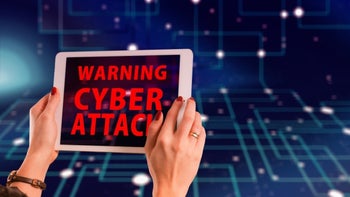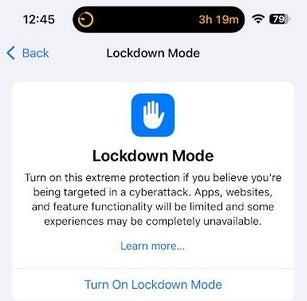Here's how to use the feature that protects your iPhone in case of a major cyber attack

Roughly a year and a half ago we told you about the iPhone's "Lockdown Mode" which is designed to protect your iPhone from a cyberattack. As Apple explains, "Lockdown Mode helps protect devices against extremely rare and highly sophisticated cyber attacks." Unless you're a high-profile personality involved in big business, politics, tech, and perhaps sports, you probably wouldn't be considered to be a likely target of such an attack. Still, it is good to know that there is something you can do if you are attacked.
"Lockdown Mode is an optional, extreme protection that’s designed for the very few individuals who, because of who they are or what they do, might be personally targeted by some of the most sophisticated digital threats. Most people are never targeted by attacks of this nature."-Apple
With Lockdown Mode enabled, you won't be able to use your iPhone as you normally do. To prevent the attackers from going after some of the data kept on your iPhone, certain apps, websites, and features are limited in Lockdown Mode. Message attachments are blocked except for certain images, videos, and audio. Links and link previews will not appear. When browsing, certain websites will load slower than usual and some might not open at all. Some images typically found on a website will show a missing image icon and some web fonts will not be displayed.

Lockdown Mode protects you and your iPhone from a cyberattack. | Image credit-PhoneArena
FaceTime calls you receive will be blocked in Lockdown Mode unless you've spoken before with the person making the FaceTime call. SharePlay and Live Photos will be disabled. Incoming invites for Apple services are blocked unless you've invited that person before. Game Center also will not work. With Lockdown Mode enabled, location data is removed from shared photos. Connecting your iPhone with an accessory will require that the handset be unlocked.
Lockdown Mode is paranoid as it protects you and your iPhone by imagining attackers everywhere. For example, with the feature enabled you will not be able to have your iPhone automatically join non-secure Wi-Fi networks. Support for 2G is turned off. Keep in mind that you'll still be able to make and take phone calls and view and send text messages. SOS emergency calls will also go through as they normally do.
Besides the iPhone, Lockdown Mode is available for your iPad and Mac. Your iPhone will need to be running iOS 16 or later to use Lockdown Mode. When you enable the feature for your iPhone, it will automatically enable it on your paired Apple Watch. You do need to turn it on separately for your iPhone, iPad, and Mac. However, when you enable Lockdown Mode on one of these devices, you will receive a notification reminding you to turn the feature on your other Apple devices.
To enable Lockdown Mode on an iPhone or iPad, go to Settings > Privacy & Security > Lockdown Mode. Then turn on Lockscreen Mode. On the next page, scroll to the bottom and tap on Turn On Lockdown Mode. You will then need to enter your device's passcode.
You can exclude a website from Lockdown Mode, open Safari, and head to that website. On the left of the address bar is an icon called the Page Menu button, tap the three-dot More icon and toggle off Lockdown Mode for that website (you must have Lockdown Mode enabled on your device first). To exclude an app from Lockdown Mode or edit the list of websites you've excluded go to Settings > Privacy & Security > Lockdown Mode. Press on Configure Web Browsing. Turn off apps in the menu that you want excluded from Lockdown Mode.
Only apps you've opened since enabling Lockdown Mode and have limited functionality will appear on the list. To edit excluded websites, tap on tap Excluded Safari Websites > Edit.
Keep in mind that most Apple device owners will never have to deal with Lockdown Mode. This is the panic button that you'll press when your iPhone is the focus of a cyber attack.










Things that are NOT allowed: